DLL Files Automatically Deleted
DLL, the abbreviation of Dynamic Link Library, is a library containing code and data. For Windows operating systems, most functions of the operating system and the running of programs are provided by DLLs. The use of DLLs helps the operating system and programs load faster and reduces the disk space usage on your computer.
However, many users report that their DLL files are always automatically deleted, rendering the program unable to run. In the next part, we will show you how to recover deleted DLL files if Windows automatically deletes DLL files and what actions can you take to prevent this from reoccurring.
How to Recover Deleted DLL Files
Way 1. Check the Recycle Bin
If your DLL files are missing, you can open the Recycle Bin and check if the deleted DLL files are located there. If yes, you can select and right-click the target DLL files and click Restore to recover them to their original locations.
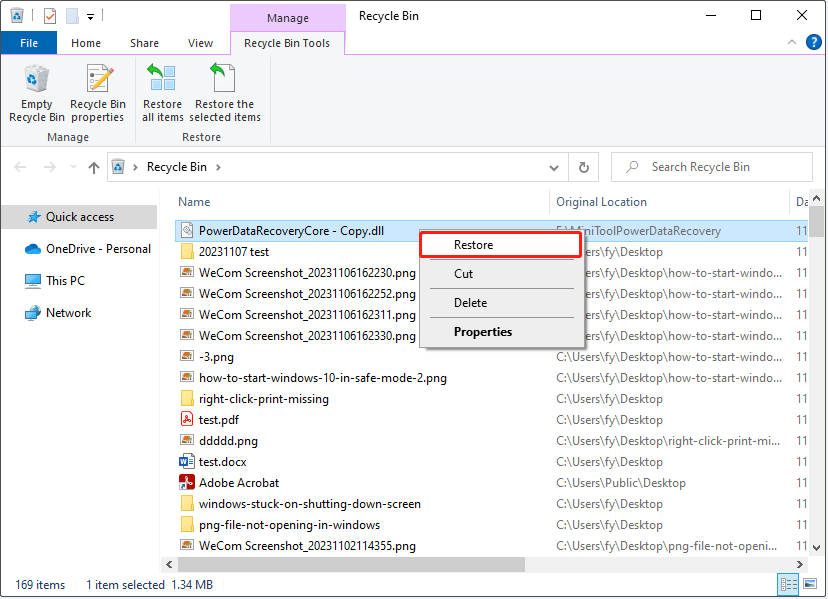
Way 2. Use MiniTool Power Data Recovery
If the Recycle Bin is grayed out or corrupted, or you have emptied it, you cannot find the deleted DLL files in the Recycle Bin. In this case, to restore the missing DLL files, you need to turn to professional data recovery software.
Here MiniTool Power Data Recovery is highly recommended. This file recovery software can effectively recover deleted WordPad documents, DLL files, videos, Word documents, Excel files, PDFs, audio, etc. The free edition supports free file scan and preview, as well as 1 GB of free file restoration.
MiniTool Power Data Recovery FreeClick to Download100%Clean & Safe
Step 1. Launch MiniTool Power Data Recovery and select the target partition where the DLL files should exist to scan.
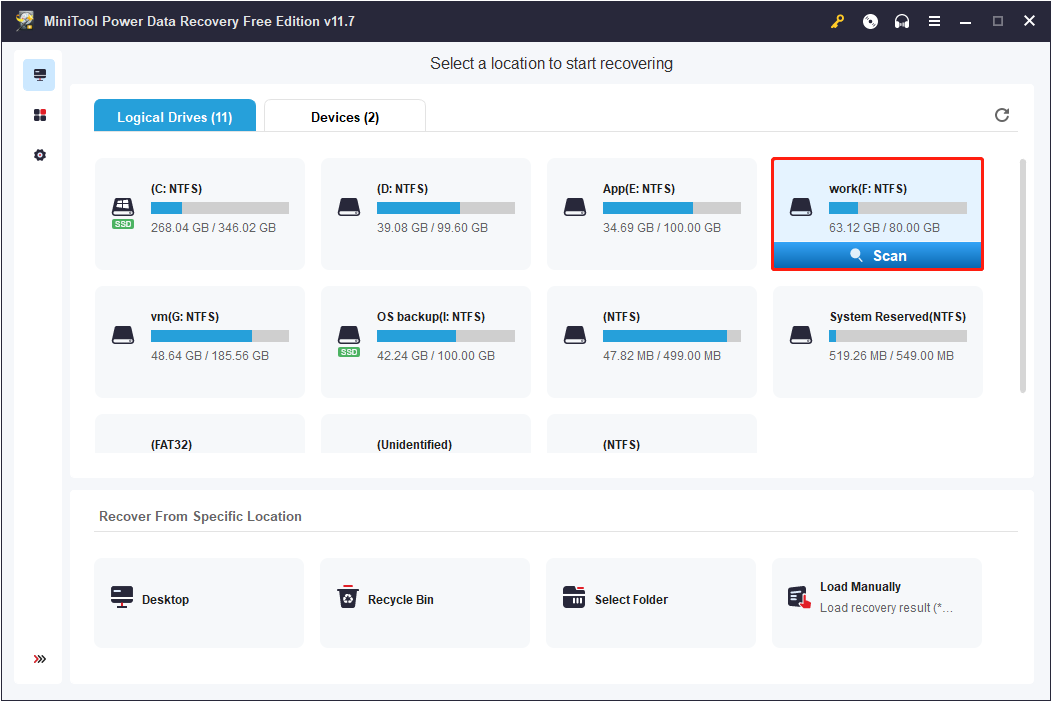
Step 2. After scanning, you can search for all DLL files. In the search box, type the file extension .dll and press Enter, then all the DLL files will be listed on the search result page.
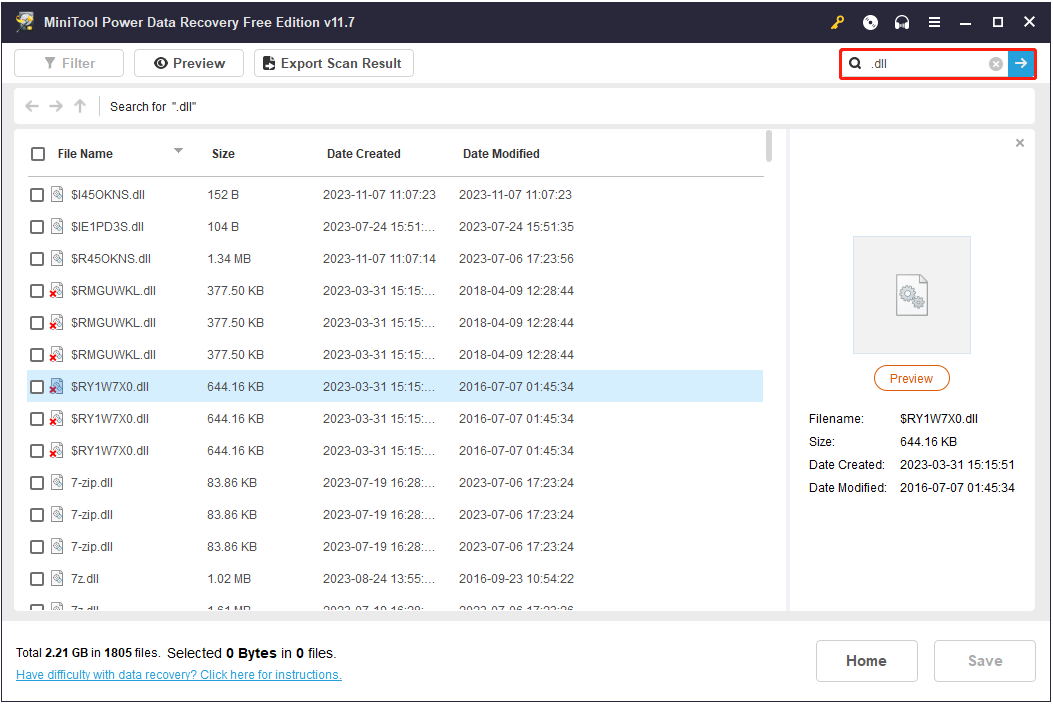
Step 3. Select the needed DLL files and then click the Save button to choose a desired location to store them.
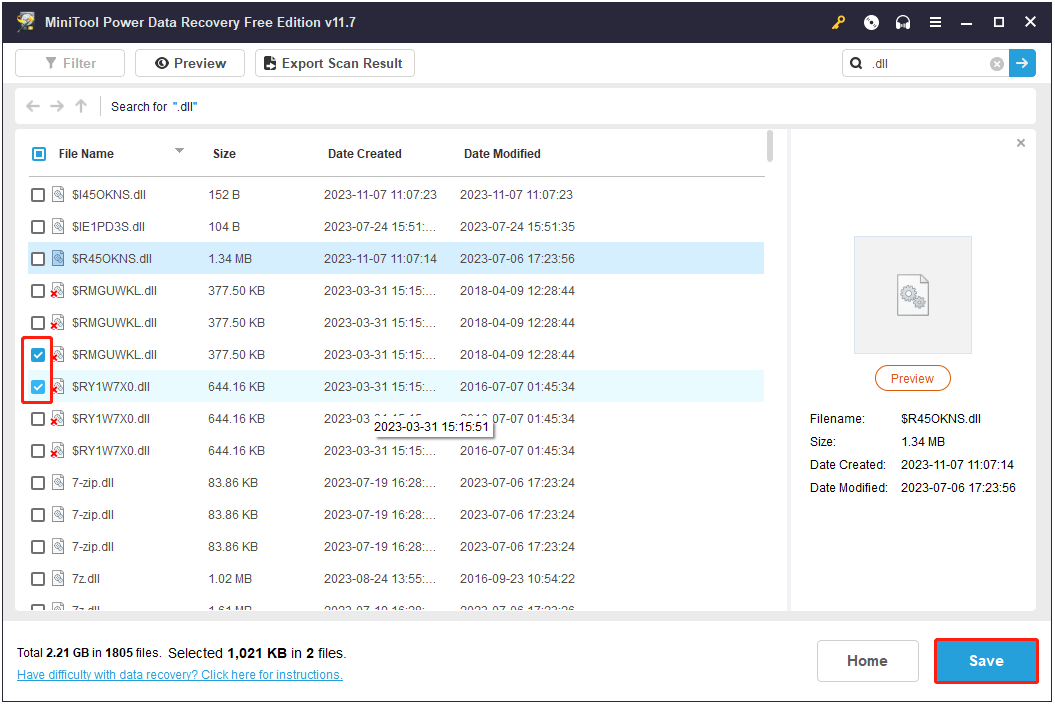
MiniTool Power Data Recovery FreeClick to Download100%Clean & Safe
How to Stop Windows From Deleting DLL Files Automatically
“DLL files automatically deleted” is usually caused by antivirus software like Windows Defender or the Storage Sense feature. To prevent your DLL files from being deleted automatically, you can try to add trusted DLL files to Windows Defender exclusions, turn off antivirus software, or disable Storage Sense.
Way 1. Add DLL Files to Windows Defender Exclusions
To stop Windows Defender from deleting files Windows 11/10, you can add the target files to the exclusions.
Step 1. Press the Windows + I key combination to open Settings.
Step 2. Click Update & Security > Windows Security. In the right panel, click Virus & threat protection.
Step 3. In the next window, click Manage settings under Virus & threat protection settings.
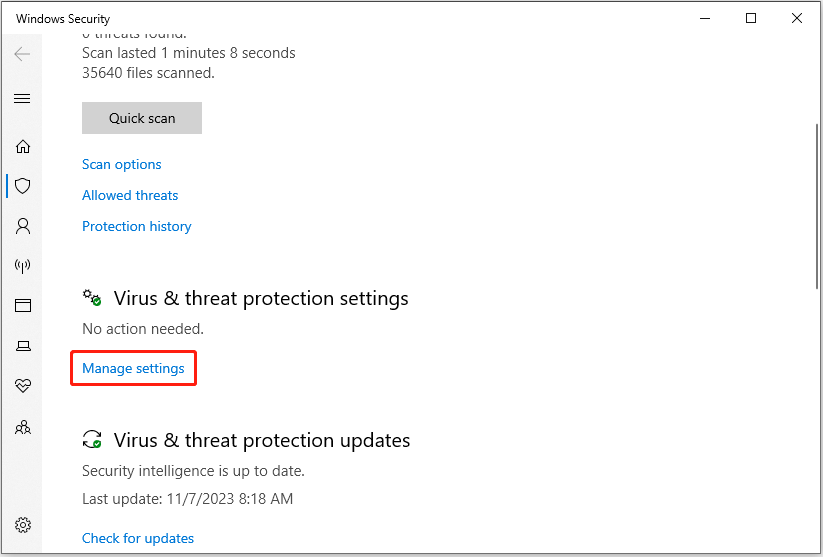
Step 4. In the new window, scroll down to click Add or remove exclusions under Exclusions. If a UAC window appears asking for permission, you need to select Yes.
Step 5. Click Add an exclusion > File type. After that, type .dll in the input box and click Add. Besides, you can duplicate these processes to add the .exe file extension to the exclusions.
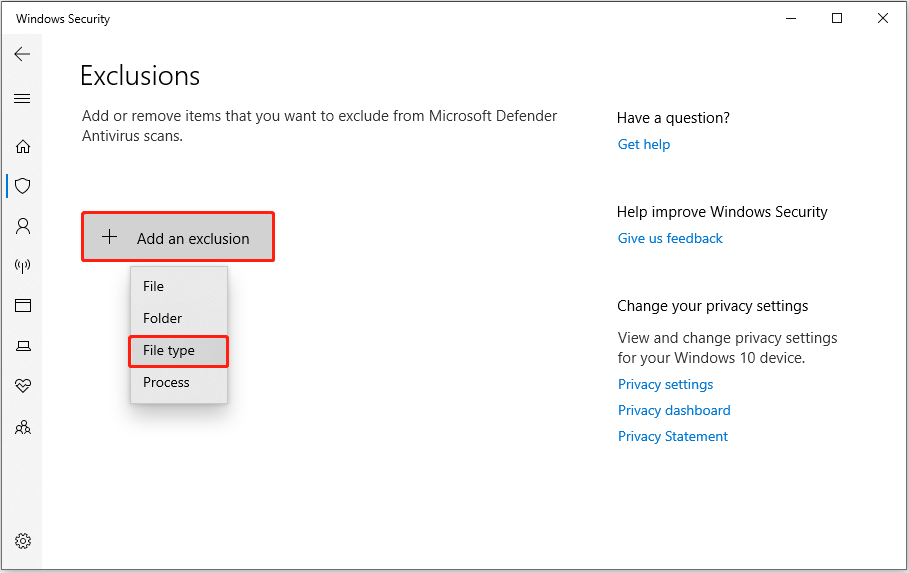
Finally, your DLL files should not be removed automatically by Windows Defender.
Way 2. Turn off Antivirus Software
There may be a possibility that your DLL files are deleted by other antivirus software. To stop this, you may consider disabling these antiviruses.
Way 3. Disable Storage Sense
Storage Sense is a useful tool that can help you automatically free up disk space on a PC. It may be the reason why a DLL file automatically deletes itself. To disable it, you can perform these operations:
- Open Windows Settings.
- Click System > Storage.
- In the right panel, switch the button under Storage to Off.
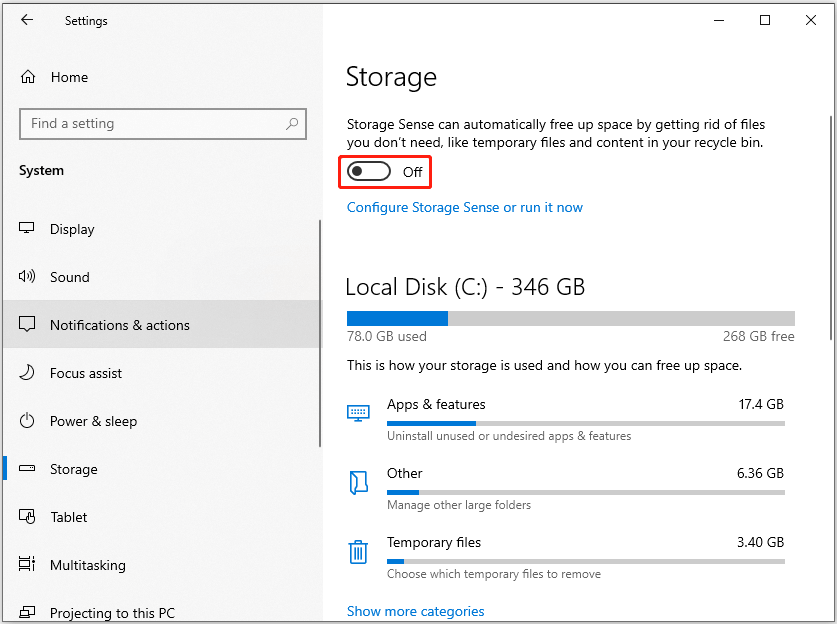
Bottom Line
“DLL files automatically deleted” can be resolved by implementing the following solutions. Also, to recover deleted DLL files or other types of files, you can seek help from MiniTool Power Data Recovery.
MiniTool Power Data Recovery FreeClick to Download100%Clean & Safe
Should you have any concerns, please let us know by sending an email to [email protected].
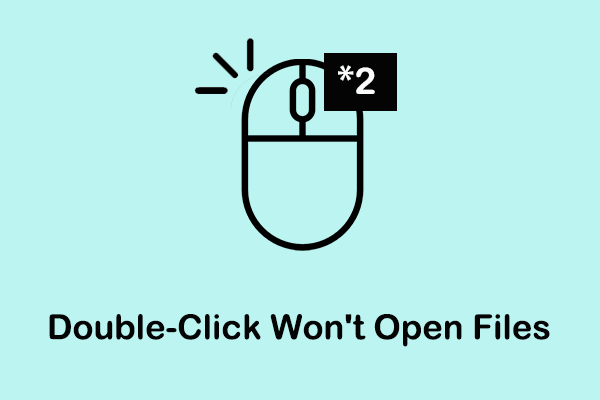
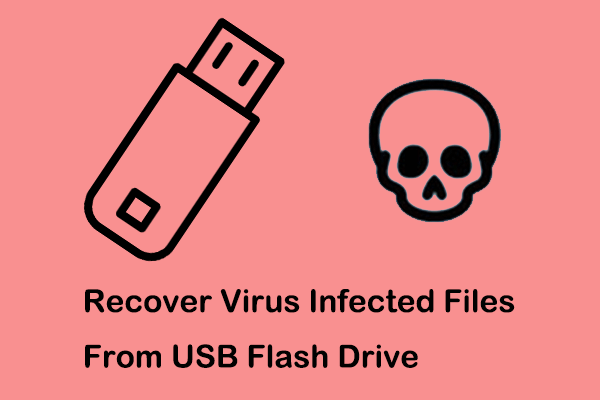
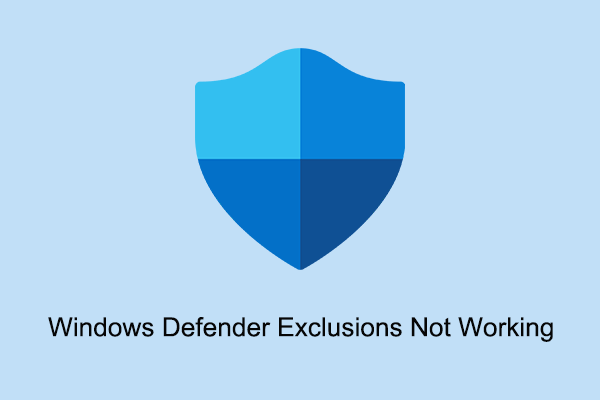
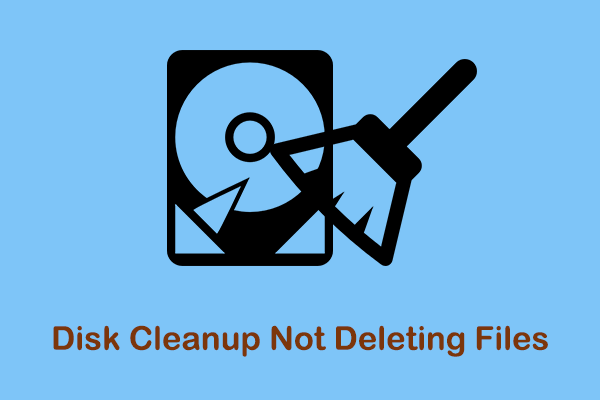
User Comments :